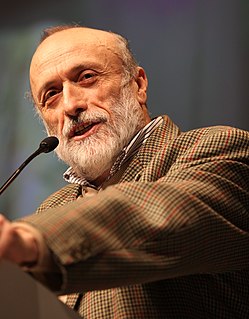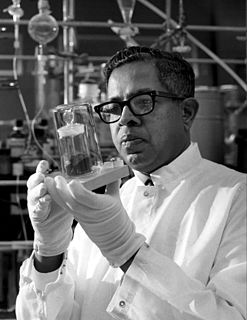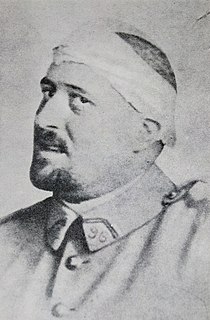Цитата Карло Петрини
Если бы пища больше не была обязана совершать межконтинентальные путешествия, а оставалась бы частью системы, в которой ее можно потреблять на короткие расстояния, мы бы сэкономили много энергии и выбросы углекислого газа. И только подумайте, сколько бы мы сэкономили с точки зрения экологии без транспортировки на дальние расстояния, охлаждения и упаковки (которые в любом случае оказываются на свалке) и хранения, которое крадет время, пространство и огромное количество природы и красоты.
Темы цитат
В любом случае
Красота
Углекислый
газ
Выбросы углекислого газа
Израсходованное
расстояние
Свалка
Экологические
выбросы
Окончание
Энергия
Еда Еда
Мусор
Путешествия
Просто
Длинные
Дальние расстояния
Длиннее
Много
Заставьте
Природу
Природа и красота
Обязаны
За
Упаковку
Части
Порции
Экономия
Небольшое
Оставшееся Место Крадет
Система
Хранения Термины
Подумайте
Время
Транспортировка
Вверх
Огромный
Который
Без
Бы
Связанные цитаты
Планируйте пополнять запасы продовольствия так же, как если бы вы создавали сберегательный счет. Откладывайте немного на хранение каждой зарплаты. Можно или разлить в бутылки фрукты и овощи из ваших садов и садов. Узнайте, как сохранить продукты путем сушки и, возможно, заморозки. Сделайте хранилище частью своего бюджета.
Энергетические потребности для межзвездных путешествий настолько велики, что я не могу себе представить, чтобы какие-либо существа, управляющие своими кораблями через бескрайние глубины космоса, делали это только для того, чтобы играть с нами в игры в течение десятилетий. Если они хотят вступить в контакт, они вступят в контакт; в противном случае они сэкономят свою энергию и отправятся в другое место.
Мы развиваем все более тесные отношения с Китаем в области изменения климата на протяжении многих лет, что привело к сотрудничеству в области торговли выбросами углерода, развития оффшорной ветроэнергетики, зданий с низким уровнем выбросов углерода, ядерной энергии, а также улавливания и хранения углерода — и это лишь некоторые из них. о том, как мы работаем вместе.
Образование является спасательным кругом для города Бостона во многих отношениях, включая подготовку и обучение молодых людей для будущего. Так что, если подумать, я бы хотел получить 25 миллионов долларов инвестиций, которые мы вложили, чтобы закрыть пробел в чартерных школах. Я хотел бы сделать эти инвестиции в другую часть школьной системы, если бы мы могли. Деньги, которые мы пытаемся приспособить к транспорту, я бы с удовольствием, если мы сможем сэкономить деньги на транспорте - это не будет сбережениями, они поступят в общий фонд, они будут реинвестированы в школу. .
Деньги незаменимы для энергосистемы с большой нагрузкой. Он должен использоваться, когда производится достаточный излишек, чтобы обеспечить маржу для обмена и стоимость транспортировки на значительное расстояние. Деньги представляют собой аккумуляторную батарею при бездействии и обобщенный способ преобразования энергии при ее движении с функцией уравнивания времени и пространства.
... если мы все уменьшим температуру термостата в нашем доме всего на один градус, мы сэкономим более 650 миллионов фунтов стерлингов энергии и почти девять миллионов тонн выбросов углерода каждый год. Это было бы эквивалентно удалению с наших дорог трех миллионов автомобилей... мы можем совершить в этой стране «зеленую потребительскую революцию», чтобы улучшить нашу жизнь, обогатить нашу экономику и защитить нашу окружающую среду.
Фундаментально изменив то, как мы проектируем места и системы, которые обеспечивают нашу повседневную жизнь, мы можем сократить выбросы намного больше, чем непосредственная экономия углерода, потому что наши собственные личные выбросы — это лишь верхушка огромного айсберга энергии и ресурсов, потребляемых вдали от нашего поля зрения.
Есть простые вещи, в которых есть смысл. Возьмем, скажем, утепление, которое значительно снизит уровень безработицы. Это та работа, которую быстро выполняют многие люди, и это сэкономит деньги отдельных домохозяйств и значительно уменьшит угрозу изменения климата. Но что-то его сдерживает: социопатический характер рыночных систем.
Мы можем придумать рабочее определение жизни, что мы и сделали для миссии «Викинг» на Марс. Мы говорили, что можем мыслить в терминах большой молекулы, состоящей из углеродных соединений, которая может воспроизводить или создавать копии самой себя и усваивать пищу и энергию. Вот и мысль: макроколекула, метаболизм, репликация.
Без поэтов, без художников люди скоро утомились бы от монотонности природы. Возвышенное представление людей о вселенной рухнет с головокружительной скоростью. Тот порядок, который мы находим в природе и который является лишь результатом искусства, тотчас же исчез бы. Все разрушится в хаосе. Не было бы ни времен года, ни цивилизации, ни мысли, ни человечества; даже жизнь уступала место, и повсюду царила бессильная пустота.
Я думаю, нам нужно переосмыслить многие деловые навыки. В финансах, например, облигации социального воздействия потенциально являются способом предоставления капитала для инвестиций, которые экономят государственные деньги в контексте, в котором правительство часто не инвестирует в вещи, которые могли бы сэкономить его деньги.
Моя первостепенная цель в этой борьбе — спасти Союз, а не спасти или уничтожить рабство. Если бы я мог спасти Союз, не освобождая ни одного раба, я бы сделал это, и если бы я мог спасти его, освободив всех рабов, я бы сделал это; и если бы я мог спасти его, освободив одних и оставив других в покое, я бы тоже это сделал. То, что я делаю в отношении рабства и цветной расы, я делаю, потому что считаю, что это помогает спасти Союз; и то, что я воздерживаюсь, я воздерживаюсь, потому что не верю, что это поможет спасти Союз.

































